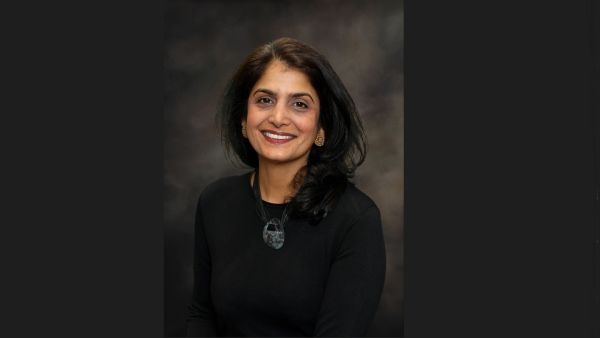Georgetown Scholar at QF Co-edits New Book on Citizenship in the Middle East

The Arab Spring uprisings of a decade ago were rooted in demands for dignity and economic opportunity, complex notions tied to the relationship between citizens and the state. A new book titled the Routledge Handbook of Citizenship in the Middle East and North Africa (Routledge 2021) co-edited and co-written by QF partner Georgetown University in Qatar (GU-Q) researcher Zahra Babar highlights how various conceptions of citizenship played critical roles in these events as well as other contemporary issues in the region, knowledge which makes an important contribution to an understudied field.
The newly published edited volume provides a comprehensive overview of the political, social, economic, and legal dimensions of citizenship in the Middle East and North Africa from the nineteenth century to the present.
“For some time, the trend has been to study the inhabitants of countries in the Gulf and across the Middle East as subjects of monarchical and authoritarian regimes, with little attention given to their role as active participants. Applying the lens of citizenship to study the social and political dynamics in the region recenters the focus on the people who live here ” said Babar, who works as the Associate Director for Research at GU-Q’s Center for International and Regional Studies (CIRS).
The region demonstrates nuanced and diverse expressions of belonging and identity that need to be examined and understood, she explained. Traditionally citizenship studies has been wedded to the notion of political citizenship as it occurs in liberal democracies, thus overlooking the many diverse forms of citizenship that have evolved in other contexts.
“So many issues we are dealing with, from migration, to education, social change and economic development, to shifting geopolitics, are closely tied to evolving conceptions of citizenship. Understanding this relationship and moving beyond oversimplifications is therefore critical to understanding the current trends and challenges faced by the region.”
The book’s five themes cover crucial dimensions of citizenship in the region, including the evolution of citizenship beginning with the Ottoman Empire, citizenship in the postcolonial era, social activism and citizenship, the mechanisms of exclusion, and the current politics of citizenship, nationality and migration. Babar said she hopes the book serves as a valuable resource for students and scholars interested in citizenship, politics, economics, history, migration and refugees in the Middle East and North Africa. As well as serving as co-editor, Babar contributed a chapter on “Economic Migrants and Citizenship in the GCC.”
The volume was also co-edited by Roel Meijer, Associate Professor in the Department of Philosophy, Theology and Religious Studies at Radboud University, Nijmegen, and James N. Sater, Associate Professor at the Department of International Relations at the University of Malta.
Zahra Babar is the author of several published articles on citizenship, including “Enduring ‘Contested’ Citizenship in the Gulf Cooperation Council” in The Middle East in Transition: The Centrality of Citizenship (2018); “The ‘Enemy Within’: Citizenship-Stripping in the Post-Arab Spring GCC” in Middle East Journal (2017); and “The Cost of Belonging: Citizenship Construction in the State of Qatar” in Middle East Journal (2014). She served as editor for a special issue of the Middle East Journal titled “Citizenship” (2019).
Background Information
Georgetown University in Qatar
Established in 1789 in Washington, DC, Georgetown University is one of the world’s leading academic and research institutions. Georgetown University in Qatar (GU-Q), founded in 2005 in partnership with Qatar Foundation, seeks to build upon the world-class reputation of the university through education, research, and service. Inspired by the university’s mission of promoting intellectual, ethical, and spiritual understanding, GU-Q aims to advance knowledge and provide students and the community with a holistic educational experience that produces global citizens committed to the service of humankind.
Located in Doha’s Education City, GU-Q offers the same internationally recognized Bachelor of Science in Foreign Service degree as Georgetown’s Capitol Campus in Washington, DC. This unique, interdisciplinary program prepares students to tackle the most important and pressing global issues by helping them develop critical thinking, analytic, and communication skills within an international context. GU-Q alumni work in leading local and international organizations across industries ranging from finance to energy, education, and media. The Qatar campus also serves as a residency and delivery location for the Executive Master’s in Emergency and Disaster Management along with the Executive Master’s in Leadership.







